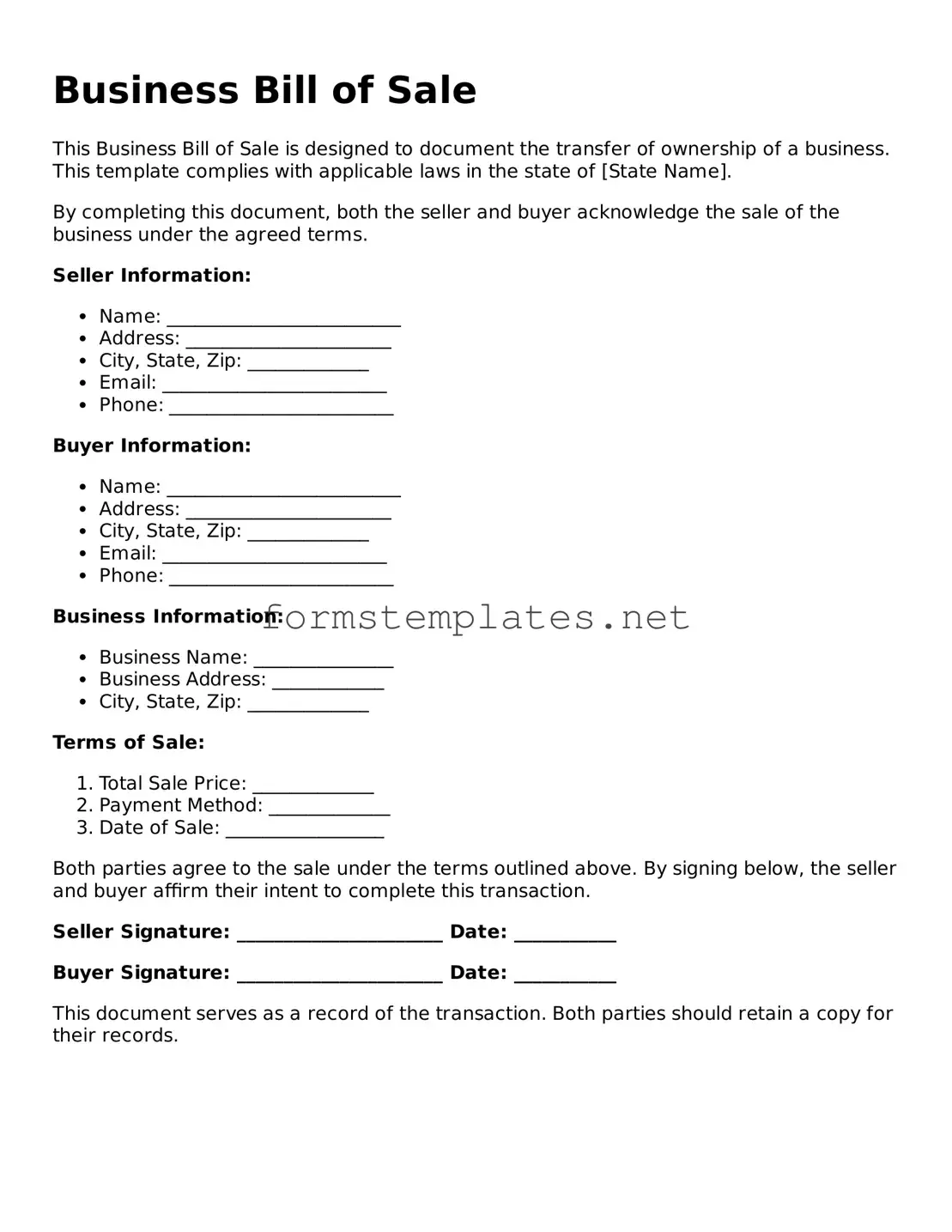Attorney-Verified Business Bill of Sale Form
A Business Bill of Sale is a legal document that serves as proof of the transfer of ownership of a business or its assets from one party to another. This form outlines essential details such as the parties involved, the items being sold, and the sale price. Understanding this document is crucial for ensuring a smooth transaction and protecting the interests of both buyers and sellers.
Open Editor Now

Attorney-Verified Business Bill of Sale Form
Open Editor Now

Open Editor Now
or
⇓ PDF Form
Your form still needs attention
Finalize Business Bill of Sale online — simple edits, saving, and download.